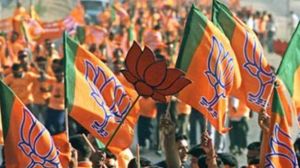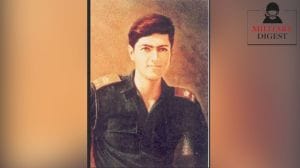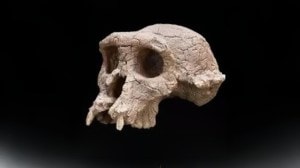Notes of a Full Life
Manna Dey on how events led him away from an anti-colonial armed resistance

Memories Come Alive
manna dey
Penguin India, Rs 450
His childhood and youth were filled with pranks, from stealing sweets with a fishing rod, to flying kites across North Calcutta skies, and then to training as a wrestler with enough seriousness to get to the state wrestling finals. He very nearly took up law as a profession. He even thought of joining the anti-colonial underground resistance and becoming a 8220;terrorist8221;.
It was only a sequence of chance events, then, that led Prabodh Chandra Dey to take up music as a career and to go on to become Manna Dey, one of the best-loved singers of his time.
This memoir was first published in Bengali as Jibaner Jalsaghare; this English translation by Sarbani Putatunda does justice to the dense, layered narrative.
In an age of celebrityhood and narcissism, the strikingly remarkable thing about this autobiography is how little of it is about Manna Dey alone, and how much of it is about the friendships and relationships with others that have shaped his life over the decades. It is not just about the relationship with his mother Mahamaya Devi, his uncle and first guru Krishna Chandra Keshto Dey, his wife Sulochana Kumaran and his illustrious contemporaries, but also with the listeners across the country who found such wonderful pleasure in his songs.
Like the little Santhal girl who brought Manna Dey a single red rose. The Sardarji cabbie who begged him to come to his house for a cup of tea. The garage mechanics who repaired his car in no time at all and then touched his feet. The boy in Kashmir who, noticing that the singer was numb with cold, stepped on the dais and offered him a woollen cap to wear on his head.
The memoir is filled with little stories about how various songs happened or almost did not happen: like the classical duet with Bhimsen Joshi, Juhi, champak, banphool, which Dey almost declined out of his nervousness about singing along with the great classical singer, but which Sulochana persuaded him to accept. The story of Dey8217;s Malayalam song for the film Chemmeen, which went on to win National Awards both for him as singer and for Salil Choudhury as composer.
The fascinating story of one night when Sachin 8220;Karta8221; S.D. Burman walked into Dey8217;s house dressed only in a vest and lungi, bringing a tune set in Raga Ahir Bhairavi which Manna would have to sing the next morning 8212; and which later became the lovely Poocho na kaise maine rain bitaye.
But more than just being the logbook of a musical career, this is a narrative about
the formation and sustenance of a creative life. Dey8217;s ability to see his career in pro-
portion and context is at least partly imbibed from his mother, who would gather her
children around her in their ancestral home and tell them about their homeland, the
anti-colonial struggle and the great leaders of the time.
There was also the example of his fully blind uncle Keshto who, supported by Dey8217;s remarkable grandmother, acquired training in classical music, acted on stage and later in films, and moved to Bombay to pursue a successful career in composing for movies. And then there was the support of Dey8217;s Keralite wife Sulochana, who taught at the Bombay University and sang Rabindra Sangeet 8212; in fact, that was how they met.
One of the lovely things about this memoir, a rare thing really in memoirs of famous men, is Dey8217;s shining pride and recognition of his wife8217;s achievements not only as an academic but also as homemaker and mother. All told, a recommended read.
- 01
- 02
- 03
- 04
- 05































